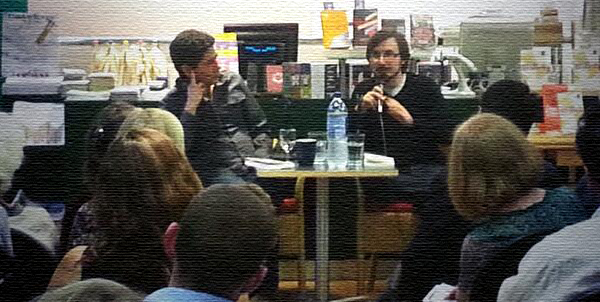You have no items in your cart. Want to get some nice things?
Go shopping
Halfway through last week’s talk about translation at the London Review Bookshop – a floor-to-ceiling book nirvana – publisher Stefan Tobler said something that would make many book reviewers squirm guiltily. “Reads smoothly,” he pointed out, is one of those phrases that critics use to describe a translation without actually saying anything about it, a bit like “needed editing”. After all, should the mark of a good translation be that it “reads smoothly” when not all literature is neat and tidy in its original form? I squirmed in my seat, guilty of casually dropping into a review a line about the “smoothness” of a translated novel without really thinking – about the intricacies, complexities and impossibilities associated with translating a piece of writing from one language to another – despite being a keen reader of foreign fiction and a dabbler in translation.
There to get me thinking properly were Brazilian translator Tobler, who founded publishing house And Other Stories in 2010, and Mexican novelist Juan Pablo Villalobos, author of Down the Rabbit Hole and the recently released Quesadillas, both translated into English by Rosalind Harvey and published by And Other Stories. Tobler and Villalobos have also both translated new title All Dogs Are Blue, a novel set in a mental asylum, from the original Brazilian Portuguese – Tobler into English and Villalobos into Spanish. It was this “dirty, unpolished” novel and Villalobos’s open-ended Quesadillas that provided much of the material for discussion: from the thorny issue of what makes a “good” translation to the difficulties of moving from one literary tradition into another, to the slippery notion of how to capture the “spirit” of a book, not just the words, and on to the nitty-gritty of whether to include a glossary of terms or to translate every single word, and “lose” something in the process.
Because, it becomes apparent, there is an inexhaustible supply of hazards, hurdles and decisions for the translator to avoid, leap over and carefully consider – and that is before he finds that, unfortunately, not everybody is that interested in reading translated literature, that some people view it with suspicion or believe that you can’t ever truly translate “losing” – there’s that word again – something. Indeed, it has become something of a cliché to say that there is something “lost in translation”. Only last month, an edition of BBC Radio 4’s Front Row featured a handful of writers who expressed a disregard for translated literature – a disregard that Edith Grossman deftly dismantled on the And Other Stories blog.
Alas, there wasn’t time to get to the heart of the issue of disdain – and the oft-cited fact that only 3% of titles published in English-speaking territories are translations – at this short but sweet talk, but it hovered temptingly near the edges. In fact, Villalobos echoed Edith Grossman’s assertion that “every competent translator has to be a writer, because that is what we do” when he declared that “translators are writers, and they create new versions of a novel”. This is a bold claim, and one with as many detractors as supporters. Can a translator ever create anything wholly original, given that he is working within the parameters established by somebody else? On the other hand, surely a translator proves his inventiveness by knowing, crafting and using both his own language and the target language?
It’s a tricky question, which is why we were lucky to hear from a man who has seen both sides of the argument. Villalobos is a novelist, but he is also an author who has experienced being translated – he works closely with his translator Harvey – and a translator in his own right. The enjoyable thing about translating, he says, is that the hard novelistic decisions – the ones he struggles with as a writer – have already been made for him. Nonetheless, both he and Tobler conceded that there are numerous pitfalls to navigate when it comes to a translation, including being aware that by removing a text from its cultural tradition, as you might when you place a Brazilian novel in an English reader’s mind, you risk a different interpretation to that originally intended. Some things, it seems, are unavoidable – though, Villalobos added, all readers read differently, no matter their cultural and literary traditions.
This might have been a rather woolly answer to an (admittedly complicated) question, but what can you expect when you are dealing with an art that is capable of both incredible precision and ambiguity, that can create infinite different versions of one text and which is as much concerned with capturing an elusive “spirit” as it is with pinning down individual words? And even if Tobler and Villalobos didn’t reach any concrete conclusions as to the relationships between translator and text, translator and writer and reader and translated text, they shone a brief but revelatory light on the complex but subtle nature of these relationships and on the infinite intricacies of translation.
“Reads smoothly” doesn’t begin to cover it.

About Bella Bosworth
Bella Whittington reads and reviews a bit of everything, but is particularly interested in literary fiction, translations and short stories. After living in Spain for a year, she now works as an assistant editor for Transworld Publishers in London. She has also contributed to Thresholds, the University of Chichester's international short story forum, and the Harker.




